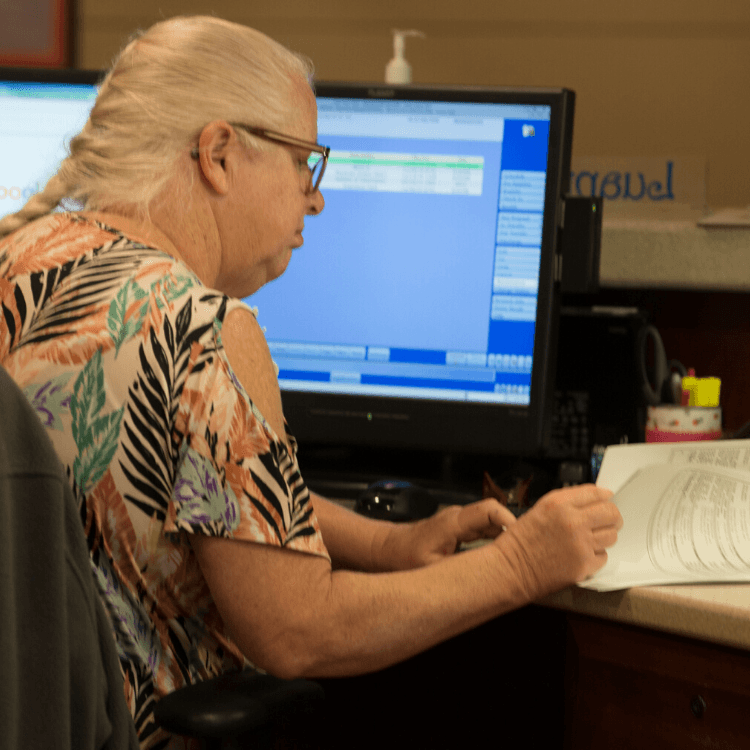What Patients Can Expect at Southeastern Med
At Southeastern Med in Cambridge, Ohio, patient care is our highest priority. From testing and procedures to nutrition and medication management, there’s a lot that goes into your care while you’re in the hospital.
Infection Prevention
Our Infection Prevention program is designed to promote a safe and healthy environment for healing, and to minimize the risk of spreading infections to patients, health care workers and our other guests.
Our program is simple, yet effective, and the first and most important measure taken to reduce the risk of infection is the simplest of all.
Handwashing
It is important for all health care professionals to clean their hands both before and after contact with each patient. While we do all we can to offer a safe and clean environment, we hope that you’ll help us by taking part as well. We encourage patients and visitors to clean their hands after sneezing, coughing, and using the restroom and before and after eating. It’s also helpful for visitors to clean their hands when entering and leaving a patient’s room. Either hand sanitizer or soap and water works most of the time.
Coughing
Covering your mouth with a tissue while you cough or sneeze goes a long way towards stopping germs from spreading. Be sure to throw away used tissues in the wastebasket and clean your hands afterwards! If tissues aren’t available, we suggest sneezing or coughing into your upper sleeve as an alternative.
Visitors
We welcome friends and family to visit our patients, but for your protection as well as that of our patients, we ask that you check with the nurses’ station before entering a patient’s room. We also suggest limiting the number of visitors to two at a time to reduce the spread of infection. Anyone with a fever, cough, cold, sore throat, or contagious illness should avoid visiting patients in the hospital.
Medication Administration
As part of your patient care, you may be given medication, so it’s important for us to be aware of any potential interactions. Tell your healthcare team about any and all medications you are taking, even if they seem insignificant, such as over-the-counter pain relievers, allergy medications or vitamins.
Your Southeastern Med healthcare team will be checking on you regularly, so be sure to communicate any side affects you may experience.
Pain Management
Pain management is one of the ways we keep you comfortable during your stay. Your health care team will discuss your pain control goals with you and administer medication accordingly.
Be forthcoming with them and tell them if you are experiencing pain and to what level it hurts. Describe your pain using words such as sharp, dull, aching, stinging, or burning, etc. Be specific about the location and intensity of the pain and if moving or breathing makes it better or worse.
We’ll continually evaluate your pain management services to make you as comfortable as possible.
Rounding
Patients should expect to have someone check on them once every hour during the day and every couple of hours at night.
Condition H
Another critical component to your patient care is something we call Condition Help, or Condition H. If you or family members need to notify us of a change in your condition or request emergency assistance, dial 77 from your room phone and press the nurse call light. Our operator will ask for the patient name, room number, and concern. The operator will then activate Condition H and a patient care team will be immediately alerted to come to your room and assess the situation.
Advance Directives
Advance directives such as Durable Power of Attorney and a Living Will are ways to express your healthcare wishes. Advance directives allow everyone involved in your patient care, including your healthcare team and your family, to know your wishes before treatment occurs. They are especially helpful in the event that you can’t communicate your wishes.
If you do have an advance directive, we’ll need to have a copy of it on file, and someone from your patient care team will review it with you to be sure it expresses your current wishes.
If you don’t have an advance directive on file, we can provide you with information to help you control the extent and intensity of your care. If you’d like information on advance directives, contact our Spiritual Care Department
Transition to Home
When you are ready to be discharged, your nurse will talk with you about your transition to home. He or she will give you and your support person a list of medications and instructions, as well as any documentation for follow-up appointments. Don’t hesitate to ask any questions you have.
If you need help at home, you may qualify for a home health agency representative to visit you.
Call our Case Management Department



